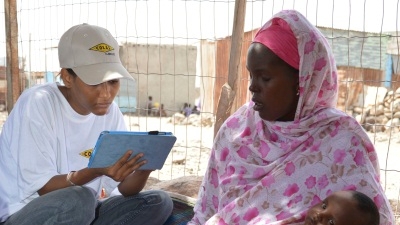Last month the World Bank hosted the Survey Solutions Workshop, a four-day event to provide development practitioners with the tools and techniques to design and implement world-class household surveys. At the opening session, Marcelo Giugale, the World Bank's Director of Economic Policy and Poverty Reduction Programs for Africa, laid out the need for the workshop: “We must learn about the lives of the poor, and that cannot be done without timely, relevant, high-quality household survey data.” New technologies such as mobile phones and tablets are helping deliver on this agenda by providing more timely updates on the progress towards ending extreme poverty and boosting shared prosperity. But data quality remains elusive.
"If no emphasis is put on survey management, potential gains in quality stemming from the use of mobile technologies for data collection could be illusory," argued Talip Kilic, a research economist at the World Bank and part of the Living Standards Measurement Study (LSMS) team. "The data collected with tablets or smartphones may seem 'cleaner', but its accuracy could be questionable unless there is a system in place to hold all survey staff accountable, whether managers at the headquarters or staff in the field."
Ensuring accountability was one of the reasons for the creation of Survey Solutions, a unique suite of tools for data collection and household survey management. Survey Solutions was developed through a collaboration of the LSMS and Computational Tools teams within the World Bank’s research department. Although the market offers a range of software options to conduct surveys on tablets, none have sufficiently addressed the management aspects of fieldwork. Edwin St Catherine, director of statistics at St Lucia's Central Statistical Office, confirmed this point: "The possibility of managing enumerators and supervisors...is critical for us, critical to data quality, and it is not available in any of the other software."
Three years ago the World Bank came to the same conclusion. The LSMS group commissioned an independent review of available computer-assisted personal interviewing (CAPI) software. The conclusion? An all-inclusive CAPI solution that supported the survey management process was needed to enhance effectiveness in serving the World Bank’s clients—primarily statistical agencies in developing countries—in conducting high-quality household surveys.

